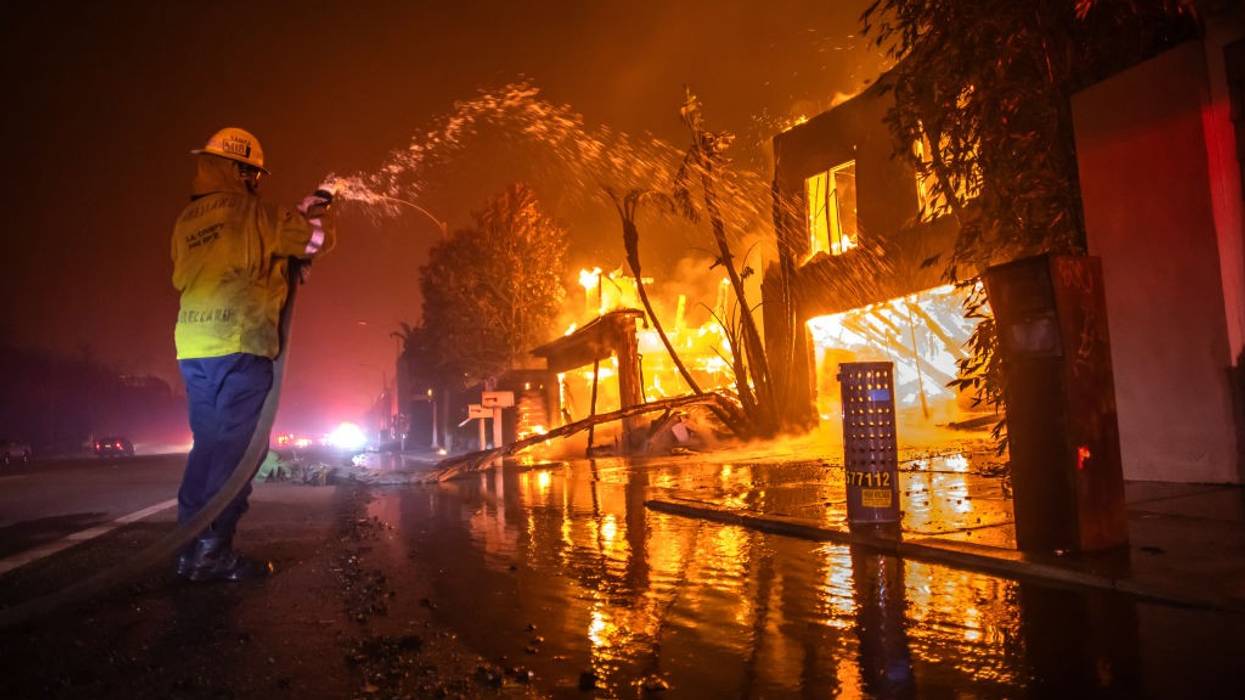"This is the critical decade for climate change," Piers Forster, lead author and director of the Priestley International Centre for Climate at the University of Leeds, said in a statement. "Decisions made now will have an impact on how much temperatures will rise and the degree and severity of impacts we will see as a result."
The new paper was released at U.N. climate talks ongoing in Bonn, Germany, from June 5 to 15, as the Financial Times reported. The talks are part of the lead-up to the COP28 U.N. climate conference in the UAE in December, which will feature the first global stocktake of progress towards meeting the 1.5°C goal by 2050.
In crafting climate plans, negotiators and policymakers rely on authoritative reports from the IPCC, but these are only released on average every six years, as AFP noted.
"The problem with the IPCC is that it comes once a decade & is outdated when it is published!" scientist and IPCC author Glen Peters observed on Twitter.
The last major IPCC report on the physical science of climate change was released in 2021 based on data from 2019, according to the Financial Times. This information then fed into the Sixth Synthesis Report published in March, the University of Leeds noted.
The new study is part of a larger attempt to provide world leaders with the latest science through the Indicators of Global Climate Change and website, which will update important climate indicators each year.
According to Thursday's updates, the burning of fossil fuels and destruction of forests caused an average 1.14°C of warming between 2013 and 2022, an increase from the average 1.07°C of warming between 2010 and 2019.
"Over the 2013–2022 period, human-induced warming has been increasing at an unprecedented rate of over 0.2 ∘C per decade," the study authors wrote.
"Even though we are not yet at 1.5°C warming, the carbon budget will likely be exhausted in only a few years as we have a triple whammy of heating from very high CO2 emissions, heating from increases in other GHG emissions, and heating from reductions in pollution."
Unfortunately, the progress that has been made in cutting down on coal use has helped boost warming in the short term by removing cooling aerosols from the atmosphere.
"This robust update shows intensifying heating of our climate driven by human activities," study co-author Dr. Valérie Masson-Delmotte, from the Université Paris Saclay, who also co-chaired Working Group 1 of the IPCC's Sixth Assessment report, said in a statement. "It is a timely wake up call for the 2023 global stocktake of the Paris Agreement—the pace and scale of climate action is not sufficient to limit the escalation of climate-related risks."
While there is some evidence that the yearly uptick in the pace of emissions is slowing down—the International Energy Agency found that energy emissions had risen less in 2022 than 2021—the increase needs to not only stall, but reverse, as The Guardian explained:
The Intergovernmental Panel on Climate Change calculated in 2018 that the world must nearly halve greenhouse gas emissions by 2030, compared with 2010 levels, in order to stay within the 1.5C threshold, and reach net zero emissions by 2050. But that calculation rested on an assumption that the world would reduce emissions by about 7% a year during the 2020s.
As emissions have continued to rise, the annual rate of decline for emissions will now have to be much steeper to stay within the 1.5C limit.
The IPCC put the global carbon budget at around 500 metric tons of carbon dioxide in 2020; it is now at around 250.
"Even though we are not yet at 1.5°C warming, the carbon budget will likely be exhausted in only a few years as we have a triple whammy of heating from very high CO2 emissions, heating from increases in other GHG emissions, and heating from reductions in pollution," Forster said. "If we don't want to see the 1.5°C goal disappearing in our rearview mirror, the world must work much harder and urgently at bringing emissions down."
The new study isn't the only alarming climate data released this week. The National Oceanic and Atmospheric Administration reported Monday that atmospheric carbon dioxide levels had reached a peak of 424 parts per million in May, levels not seen in millions of years. Scientists said Tuesday that the loss of summer Arctic sea ice is now inevitable. And the EU's Copernicus Climate Change Service announced Wednesday that air and sea-surface temperatures over non-ice-covered oceans were the highest for any May on record.
At the same time, wildfire smoke from unprecedented fires in Canada has smothered the eastern U.S. while record heat bakes the Caribbean.
Climate groups are launching a week of action in the U.S. Thursday calling on the Biden administration to declare a climate emergency and reverse the approval of major fossil fuel projects. In Bonn, demonstrators greeted the arrival of COP28 president and UAE state oil company head Sultan Ahmed al-Jaber with a banner drop.
"Keep the coal in the hole, keep the oil in the soil, keep the gas in the ground!" the activists demanded.




